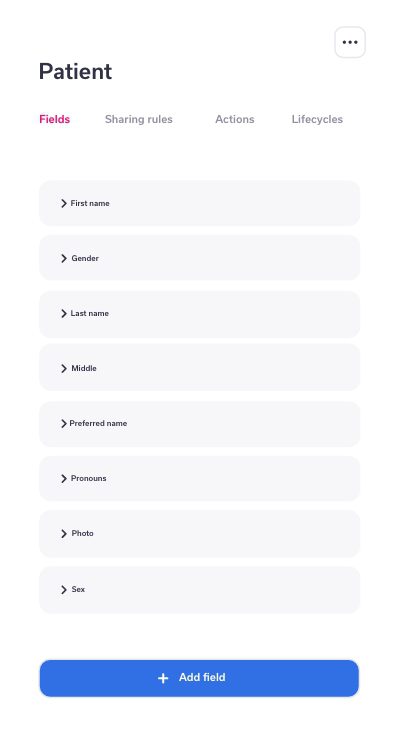It’s time for a modern healthcare platform.
Configure.
Extend.
Create.
Make the easy things easier and the hard things possible.
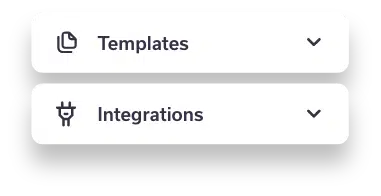
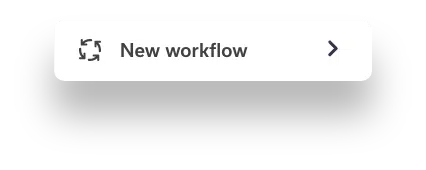
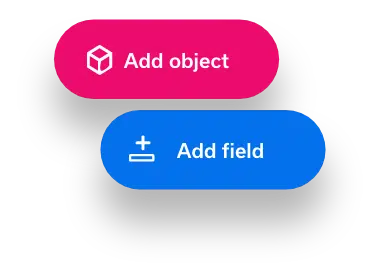
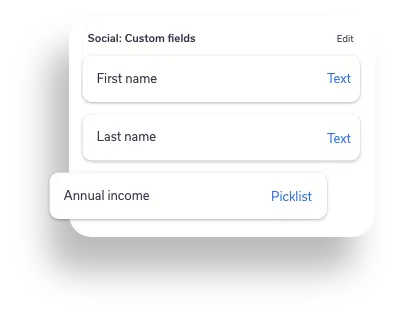

A foundation that is agile, flexible & built to last.
Out-of-the-box applications
An evolving suite of solutions to solve the most important healthcare challenges.
EMR integration
Easily plug into your EMR systems with bi-directional data exchange.
Configurable and extensible
Add, remove, and extend workflows to compose solutions for your unique organization’s needs.
Data-driven intelligence and action
Our solutions run on analytics-informed logic, making our apps smarter and the whole system dynamic.
Form builder and reusable components
Extend our pre-built templates any time with custom fields and functionality that suit your use cases.
Interoperability and APIs
Works seamlessly with your ecosystem to save staff time and resources.
Self-service console
Our agile, no-code, low-IT tooling gives you the power to create your own solutions on your terms.
Enterprise-grade and HIPAA compliant
Tendo is natively architected for healthcare to ensure privacy and security.
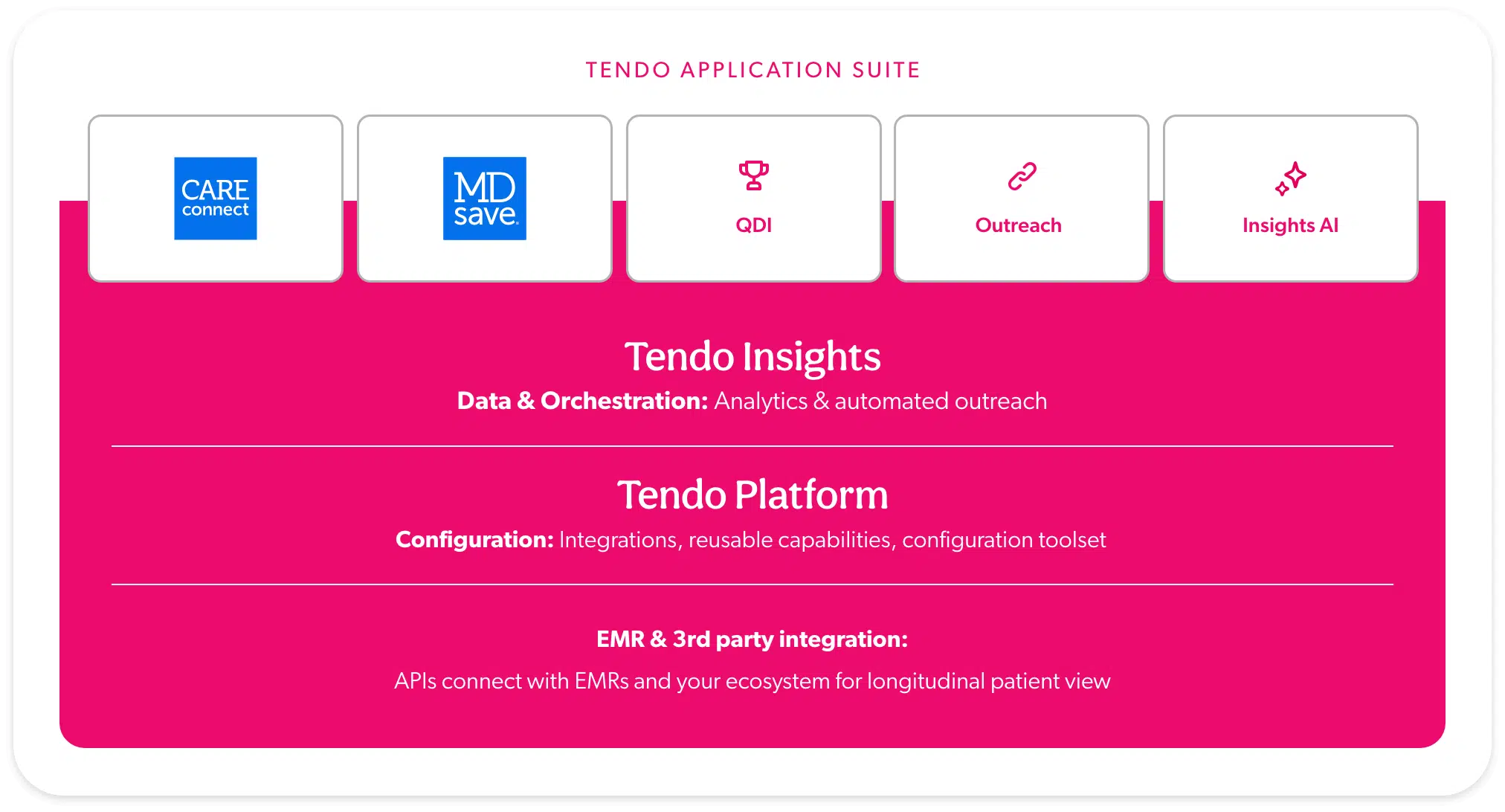
Your self-service toolkit for rapid configuration.
What once took weeks or months now takes hours.
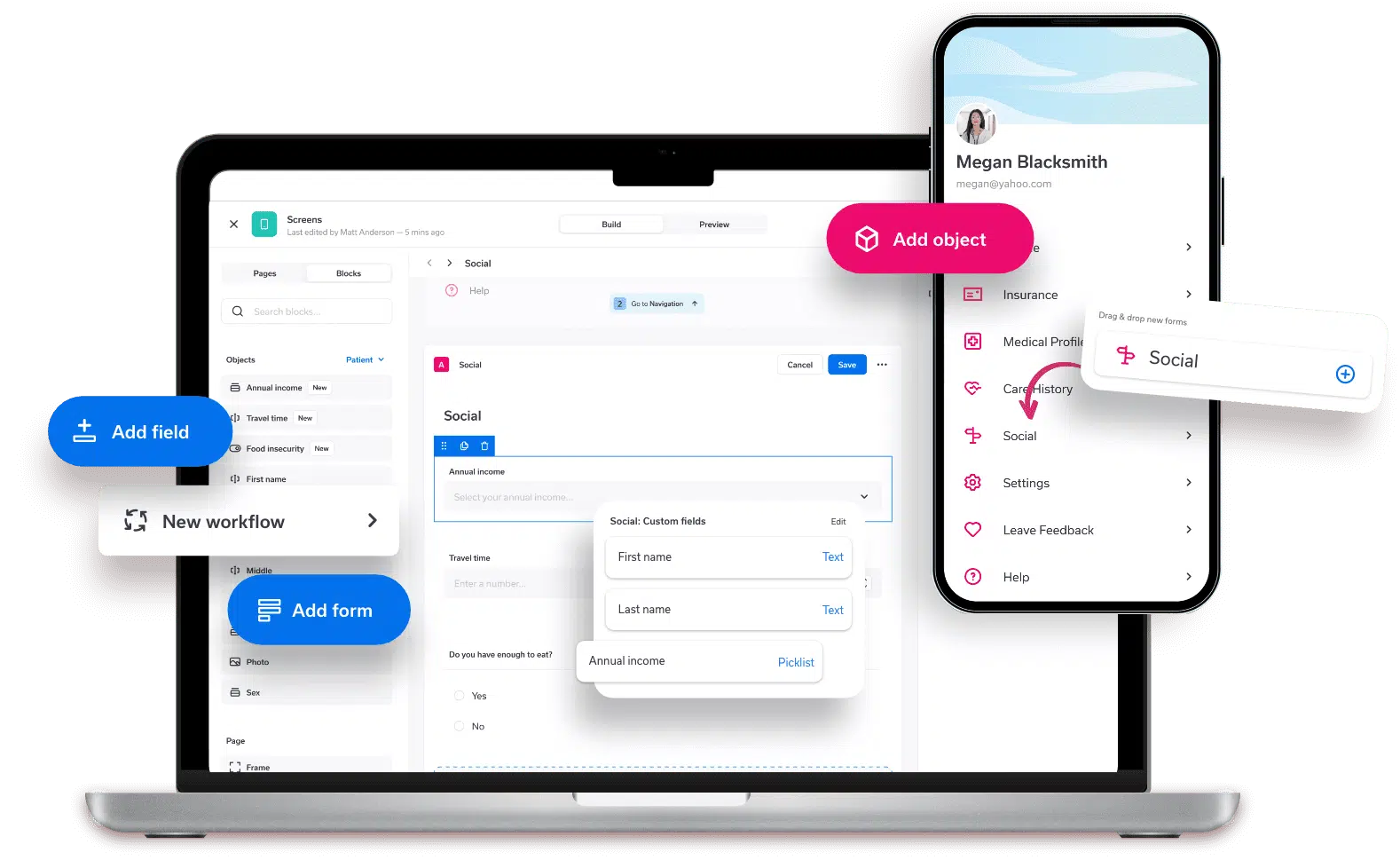
It’s time to unlock your operational efficiency.
Tendo product enhancements are delivered frequently and seamlessly.
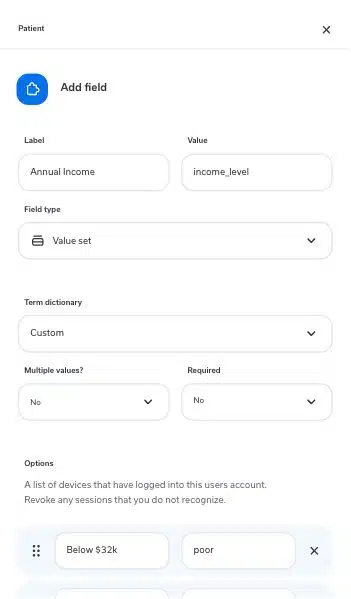
Keep your business agile
Accelerate the deployment of new applications and capabilities to get to market faster.
Maximize user engagement
Automate outreach and proactively engage your stakeholders.
Consolidate your ecosystem
End your reliance on multiple point solutions. Everything you need is organized around one platform.
Supercharge your key initiatives
Launch and refine service line-specific quickly and efficiently with our care journey library of reusable components.
Reduce costs
Differentiate without building from scratch with easy and affordable ongoing development and maintenance.
Create solutions built on insight
Improve health outcomes, reduce costs, and increase your ranking with our platform powered by advanced analytics data.
Want to learn more?
Request a demo.
Find out what Tendo can do for you. Have time for a quick chat?
more of what Tendo has to offer
Insights
Uncover quality & ranking opportunities to improve quality & financial outcomes.
QDI
Maximize documentation accuracy & completeness with prioritized workflows.
Outreach
Deep insights and targeted outreach to identify and engage prioritized patients.
Care Connect
Grow your employer portfolio by offering bundled, shoppable procedures.
It’s time for end-to-end care in one seamless platform.
It’s time to Tendo.
It’s time for end-to-end care in one seamless platform.
It’s time to Tendo.

